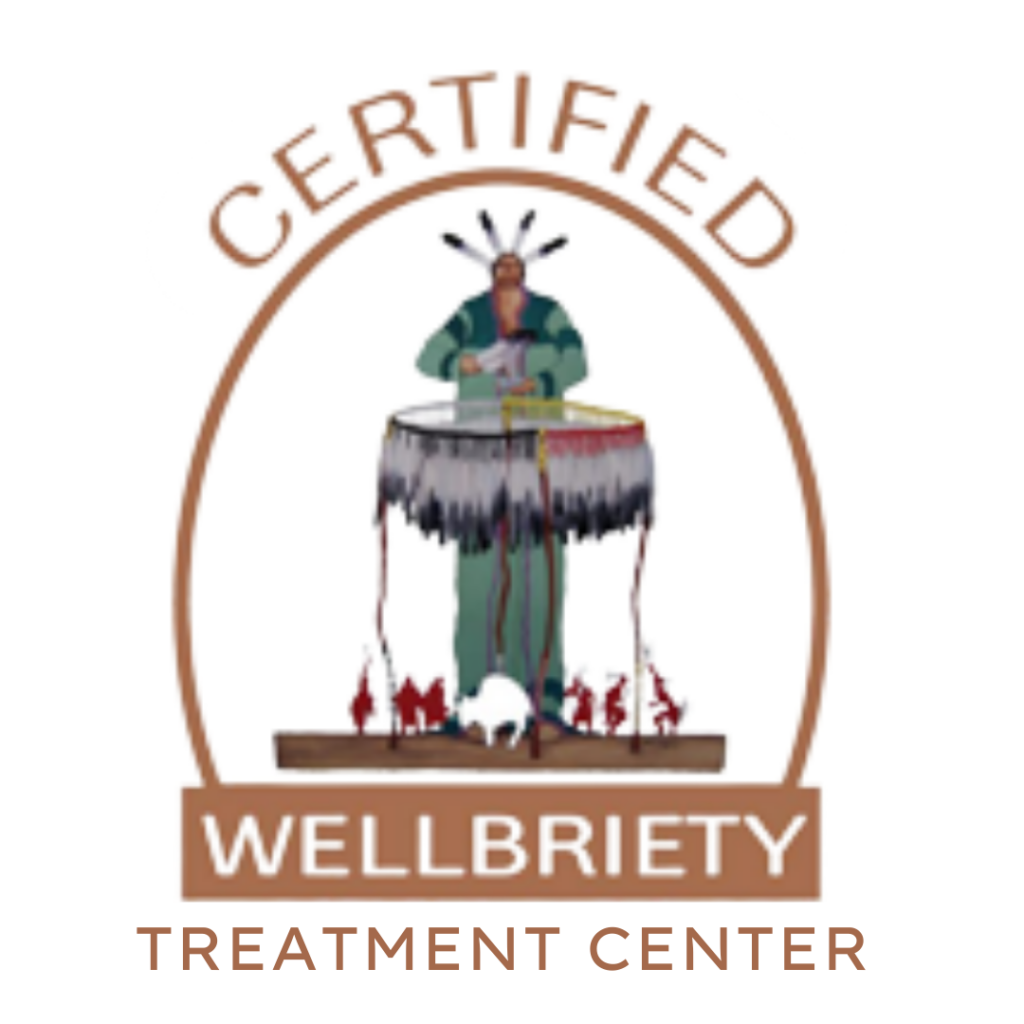Trauma Therapy in Rehab
Trauma therapy can help individuals who struggle with substance abuse and the symptoms of trauma. Rather than solely focusing on the addiction, these trauma-focused services help to address the symptoms and the cause at the same time.
For this reason, dual diagnosis treatment for substance abuse and PTSD incorporates trauma therapy services for those in recovery from both disorders. There are several other components involved in trauma-informed care that can promote healing and post-traumatic growth. For this reason, understanding the role of trauma therapy in rehab can help you or your loved one recover from addiction and PTSD.

What Is Trauma?
Trauma is a highly upsetting and damaging incident that occurs to someone. It can take many forms within the physical, mental, and emotional realms, and can stem from many experiences. Traumatic events are life-altering in negative ways. Some examples of traumatic events are accidents, neglect, abuse natural disasters, or violence. Trauma is often an experience that makes a person feel the near threat of death or bodily harm, but it can also slowly wear down one’s psyche in a different kind of destruction.
Regardless of the situation, trauma’s impact generally causes similar side effects. In general, trauma survivors may experience symptoms including:
- Reliving the event (flashbacks)
- Intrusive thoughts
- Nightmares
- Heavy breathing
- Nausea
- Anxiety
- Sadness
During the initial days and weeks after the event, this range of symptoms describes a diagnosis of acute stress disorder (ASD). Without seeking treatment, symptoms can become more severe if the person’s mental health continues to decline.
When trauma-related symptoms persist and worsen after a month, it’s called post-traumatic stress disorder (PTSD).
The signs of PTSD include:
- Hyperarousal (Always feeling a sense of impending doom)
- Hypervigilance (Avoidance of triggers)
- Emotional numbing (Difficulties expressing emotions)
- Social detachment (Inability to trust others)
- Intrusive re-experiencing (Unwanted thoughts and memories)
- Flashbacks (Dissociative state that feels like the event is re-occurring)
After struggling with near-constant levels of heightened physical, emotional, and mental distress, people struggling with PTSD may try to self-medicate their overwhelming emotions with drugs or alcohol. At this point, treatment for PTSD and substance abuse requires intensive, specialized therapies for trauma.
Change your life with one call.
You can do it, We can help.
What Is The Relationship Between PTSD and Addiction?
The symptoms of PTSD can contribute to substance abuse involving alcohol, illicit drugs, and prescription medications. While experiencing trauma alone is not enough to develop a substance use disorder (SUD), PTSD can increase the risk of SUD. This is because substance abuse can exacerbate an individual’s ability to cope with trauma, which can make them more impulsive and self-isolated.
As a result, they are at a significantly higher risk of an addiction, which has severe consequences on a person’s quality of life. For this reason, it is vital for those struggling with chronic stress, traumatic flashbacks, and substance abuse to seek help in trauma therapy.
While people struggling with traumatic memories can develop an addiction, it is important to note that substance abuse can lead to the development of PTSD. This is because people who abuse drugs and alcohol in risky situations are more likely to experience a traumatic event. For these reasons, trauma and stress disorders commonly co-occur with addiction. In order to successfully recover from PTSD and addiction, it is important to address the underlying trauma that is contributing to their substance abuse.
Therapy for Trauma
PTSD from traumatic experiences is a lasting condition that can drag people into an endless exhausting cycle of having flashbacks and coping by shutting down. No one should have to live with fear. Additional symptoms of trauma include sleeplessness, anxiety, and paranoia or terror. Unfortunately, it’s well documented that trauma survivors often carry around shame or guilt — a phenomenon known as survivor’s guilt. PTSD can feel like a psychological prison no one else has access to. This is where therapy needs to enter the picture.
Without therapy treatment for trauma, people will remain victims of their experiences and memories. And because of its far-reaching impact, trauma — especially early trauma — commonly leads to other mental and behavioral health issues.
Research has shown that trauma increases the risk of cognitive impairment and mental illness due to a weakened nervous system (the system of communication between the brain and body). Trauma survivors are susceptible to also developing clinical depression, bipolar disorder, schizophrenia, generalized anxiety, and substance use disorders.
However, trauma also tends to make people strong and resilient. What therapy aims to do is channel that strength into healthy coping mechanisms and interpersonal skills. At Royal Life Centers, our goal is to help everyone discover their passion and purpose so they can turn painful experiences into a fulfilling future.
Types of Trauma Therapy
Fortunately, trauma-focused therapy encompasses many evidence-based therapy options. Anyone who enters Royal Life Centers will work with a personal therapist to determine which options they would most benefit from on the road to recovery. At Royal, your treatment plan will incorporate a combination of different trauma therapy services to meet your needs, preferences, and goals in treatment and recovery.
Our trauma therapy offerings include:
- Cognitive Processing Therapy (CPT)
- Eye Movement Desensitization and Reprocessing (EMDR)
- Trauma-Focused Cognitive Behavioral Therapy (TF-CBT)
- Exposure Therapy
Cognitive Processing Therapy (CPT)
Cognitive Processing Therapy (CPT) is a form of CBT that examines one’s belief system to address their changed beliefs; trauma can lead to a lack of trust in one’s previously held beliefs when they no longer correlate with their new reality. CPT helps people define their belief systems so they can become more self-assured and find empowerment in their post-traumatic growth.
Eye Movement Desensitization and Reprocessing (EMDR) Therapy
Eye movement desensitization and reprocessing (EMDR) therapy introduces individuals to brief doses of trauma through memory revisitation. This trauma-informed therapy works by focusing the brain on external stimuli, such as back-and-forth movement or tapping, while accessing memories and inserting positive associations to get past the mental block often associated with trauma.
Trauma-Focused Cognitive Behavioral Therapy (TF-CBT)
Trauma-focused cognitive behavioral therapy (TF-CBT) works on interrupting trauma-based thought patterns that bring fear, anxiety, and poor self-worth. The aim is to foster self-reliance and confidence through problem-solving, reframing internal narratives, and goal-setting.
Exposure Therapy
Exposure therapy is a branch of CBT that encourages individuals in the process of facing their trauma head-on by exposing themselves to its side effects like stress and fear. When held n a safe environment in small manageable doses with the aid of a trusted counselor, exposure therapy teaches distress tolerance. The process of gradually facing fear and other trauma-related emotions can lead to a decrease in their intensity over time, helping individuals regain control of their lives.
Would you like more information?
If you or someone you know has a substance use disorder, we hope you’ll begin your journey with us at Royal Life Centers.
What to Expect in Trauma Therapy?
Therapy for trauma can offer a safe, non-judgmental environment to discuss issues and find solutions. It can provide space to understand the thoughts, behaviors, and feelings that are getting in the way of leading a fulfilling life. In therapy sessions, guests learn practical tools and strategies that they can utilize to develop strong relationships and achieve personal goals.
Therapy goals for trauma and addiction recovery may include:
- Explore and challenge maladaptive beliefs, such as “I am not worthy” or “It is my fault.”
- Participate in addiction and mental health education to better understand the impacts of trauma and substance abuse.
- Practice mindfulness-based interventions such as positive reframing or distraction techniques when intrusive thoughts and feelings surface.
- Utilize relaxation techniques to reduce feelings of stress and anxiety.
- Establish emotional regulation skills to better manage powerful emotions, such as anger, anxiety, depression, and fear.
- Acknowledge the impact of past events on current functioning and life choices.
- Reflect on the positive aspects of surviving trauma.
- Learn how to cope with triggers that may set off old traumatic memories and feelings.
- Improve interpersonal relationships and communication skills.
- Build resilience and utilize problem-solving strategies to deal with future stressors.
- Address any lingering trauma-related symptoms, such as sleep disturbances or intrusive thoughts.
- Work with case managers on life-skills training and job-readiness skills.
- Reconnect and/or build new relationships with supportive people in your life.
- Create a plan for ongoing self-care such as engaging in hobbies, exercising regularly, and maintaining a balanced diet.
With that being said, trauma therapy might sound daunting and unfamiliar, so it’s important to break down what trauma-informed therapy services during substance abuse treatment look like.
Therapeutic Services for Trauma
During treatment for substance abuse, people impacted by trauma benefit from working with their therapists to process their fears and learn how to cope with their emotions. In addition to trauma-focused therapy, there are several other individual and group psychotherapy services that can assist in the treatment of co-occurring PTSD and addiction.
Trauma-informed Behavioral Therapies
Initially developed for those suffering from borderline personality disorder (BPD), dialectical behavior therapy for PSTD (DBT-PTSD) can assist in the treatment of emotion dysregulation resulting from PTSD and complex PTSD.
As mentioned, trauma-focused cognitive behavioral therapy (TF-CBT) can assist in the treatment of PTSD and other trauma-related disorders by helping them challenge and change dysfunctional beliefs and reengage in healthy forms of self-care.
Expressive Arts Therapy For PTSD
Likewise, expressive therapies that incorporate art, music, writing, and movement are proven to improve symptoms of PSTD. For instance, research shows that trauma-focused art therapy can assist those who struggle to remember details surrounding their traumatic experiences. Similarly, studies on the impact of expressive writing therapy on PSTD found that participation led to improvements in mood and post-traumatic growth.
By engaging in expressive writing, art, and music, individuals can process their thoughts and feelings associated with a traumatic experience and gain insight into new coping strategies. These types of therapy provide an opportunity for self-expression, relaxation, and catharsis — ultimately resulting in improved quality of life for those suffering from PSTD.
Trauma-Focused Experiential Groups
Experiential groups that incorporate nature-based adventure therapy activities and animal-assisted therapy can also provide immense benefits in the treatment of trauma. Research on trauma-informed equine-assisted therapy supports the treatment as a beneficial method of healing in people suffering from PTSD.
Numerous studies on the effects of nature-based therapies on veterans with PTSD found that nature exposure may “mitigate automatic physical reactions,” or the negative reactions associated with fight-or-flight triggers.
Holistic Services for Trauma Survivors
Holistic therapy services like yoga, mindfulness meditation, biofeedback, and nutrition counseling can all provide trauma survivors with alternative, non-invasive approaches to healing. During treatment for substance abuse and trauma, we provide holistic therapies in conjunction with traditional talk therapy and trauma-focused services.
Research indicates that holistic services like yoga are effective at reducing symptoms of PTSD, anxiety, depression, stress, and insomnia. In addition to their mental health benefits, these types of services often promote physical health and well-being, which can be especially important for survivors of trauma.
Looking for a Rehab for Substance Use Disorder?

Trauma Therapy Techniques
Trauma therapy places great importance on techniques that connect individuals to the present through coping strategies for emotionally destructive feelings, dysfunctional thoughts, intrusive memories, and anxiety. Complex post-traumatic stress disorder doesn’t just bring psychological side effects. Traumatized people often experience a range of physical ailments as well, which can involve heart conditions, stroke, cancer, diabetes, or chronic pain.
Some trauma therapy techniques are:
- Cognitive restructuring: learning to replace damaging thoughts with productive and life-giving alternatives.
- Somatic experiencing: focused on releasing trapped trauma (stress) from the body’s systems through the mind-body connection.
- Creative self-expression: allows for the expression of emotions in creative ways that may feel less intense and more comfortable than psychotherapy.
- Stress management skills: replacing stress with healthy coping techniques that can promote physical and psychological wellness.
- Body scanning: mental body scans foster a mind-body connection to locate the source of the pent-up trauma (tension or pain) and mentally release it.
- Relaxation methods: utilize multiple relaxation-focused therapies like massage, biofeedback, meditation, yoga, or breathwork.
- Mindfulness practices: promotes peace and recentering in the midst of traumatic stress through options like meditation, deep breathing, journaling, and gratitude exercises.
How Can Trauma Therapy in Rehab Help Me Recover?
Trauma therapy in rehab can help individuals struggling with co-occurring PTSD and trauma-related conditions learn healthy coping skills to manage intrusive thoughts, flashbacks, and other trauma-related issues. These therapeutic activities can also provide a sense of community to those who are isolated or disconnected from society due to their traumatic experiences.
With that being said, it is important to have realistic expectations about what recovery will look like. There may be setbacks and struggles, but the knowledge gained in therapy can help foster resilience and perseverance to reach desired goals. Having a plan for recovery maintenance during and after a therapy session is important to maintain progress and avoid relapse.
During treatment in rehab, guests work with their therapist to create an individualized plan to help them overcome any obstacles and maintain their sobriety. This can include self-care activities, peer support groups, and continuing care programs. These can provide extra layers of support and motivation as they progress through treatment and the early stages of recovery.
With proper relapse prevention planning and commitment from both the guest and their support system, recovery from addiction and PTSD can be a time of growth and development that continues long after treatment ends. Completing treatment for substance abuse and PTSD doesn’t mean the end of growth — in fact, it can be just the beginning. Continued self-reflection and implementation of strategies learned during treatment can help maintain continued progress toward a healthier, more meaningful life.
Trauma-Informed Care at Royal Life Centers
When guests enter our centers, our licensed therapists and counselors first work with them to create individualized care plans. These are focused on making actionable goals for your overall well-being and lasting health. Our integrative, holistic healing therapy route treats addiction as a chronic disease that needs to be addressed by building from its foundation.
We understand that addiction often stems from the root of trauma, which is why we have a trauma-informed approach to recovery. You’ll learn tools that help you regain control and manage your symptoms in a non-judgmental facility. Our staff is empathetic to what you’re going through because many of them have their own background of trauma and addiction.
To support our trauma-focused treatment services, Royal Life Centers also incorporates SAMHSA’s Seeking Safety curriculum, a unified plan that ensures all our clinicians practice compassionate evidence-based, trauma-informed care. We want to help you release your past trauma, including but not limited to substance abuse-related trauma, and succeed in living a fulfilling life. Reach out to us today at our dual diagnosis treatment center by calling 877-RECOVERY 24/7. You can also fill out a secure contact form and we can contact you.
Looking for Trauma Therapy in Rehab?
If you or someone who cares about struggles with addiction and PTSD, please reach out to us to find out more about how our trauma therapy services can help. We work with most private insurance policies and we have affordable self-pay rates if you do not have insurance. Give us a call and we will figure out the best treatment plan for you or your loved one.
Because We Care.

Traumatic events and substance use disorders in adolescents – PMC
Traumatic stress and substance abuse problems – SAMHSA
Trauma-Focused Art Therapy in the Treatment of Posttraumatic Stress Disorder: A Pilot Study – PMC
Equine Assisted Therapy for Patients with Post Traumatic Stress Disorder: A Case Series Study – PMC
The effect of time outdoors on veterans receiving treatment for PTSD – PMC
A Yoga Intervention for Posttraumatic Stress: A Preliminary Randomized Control Trial – PMC


















